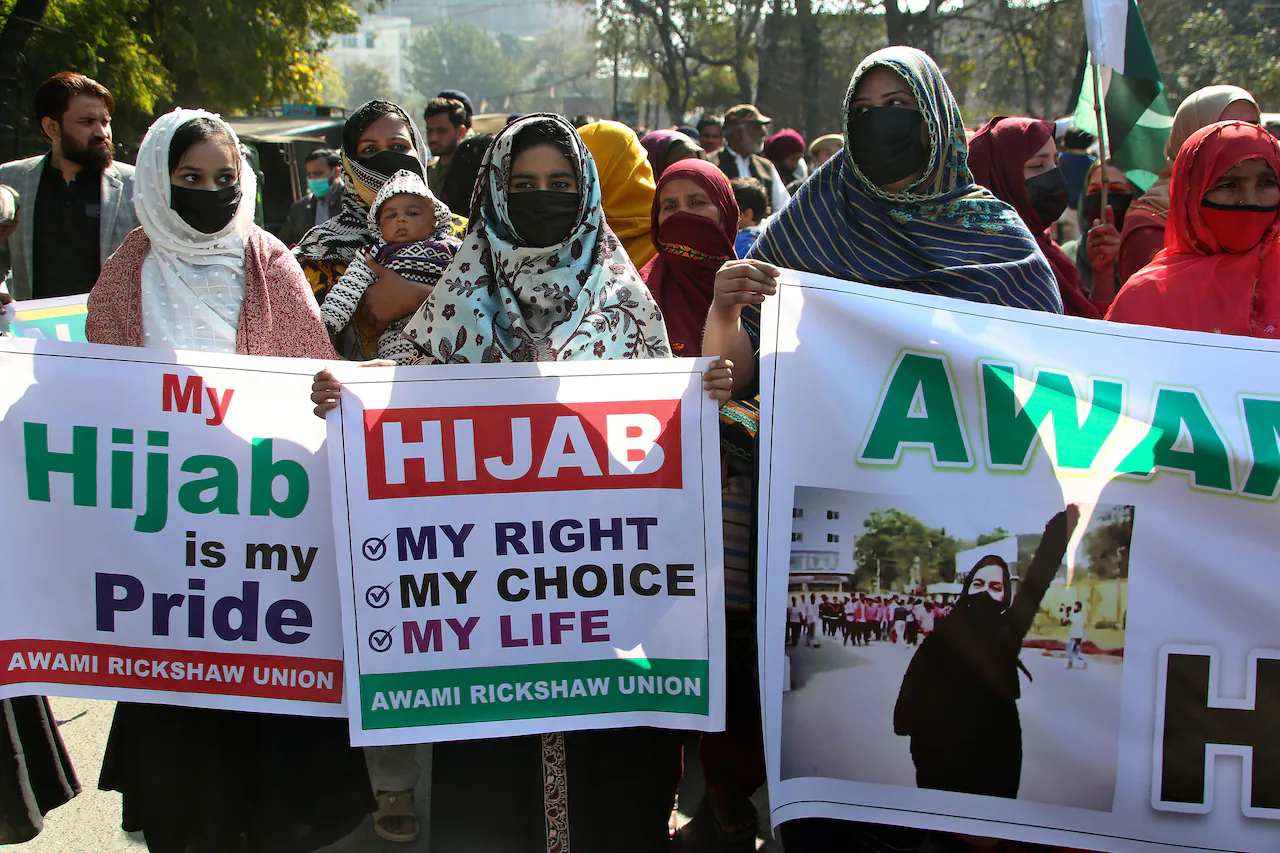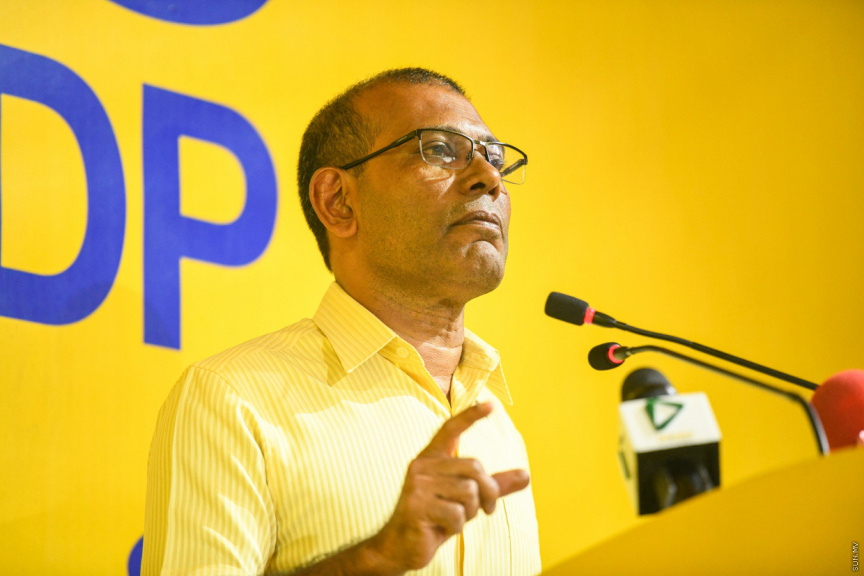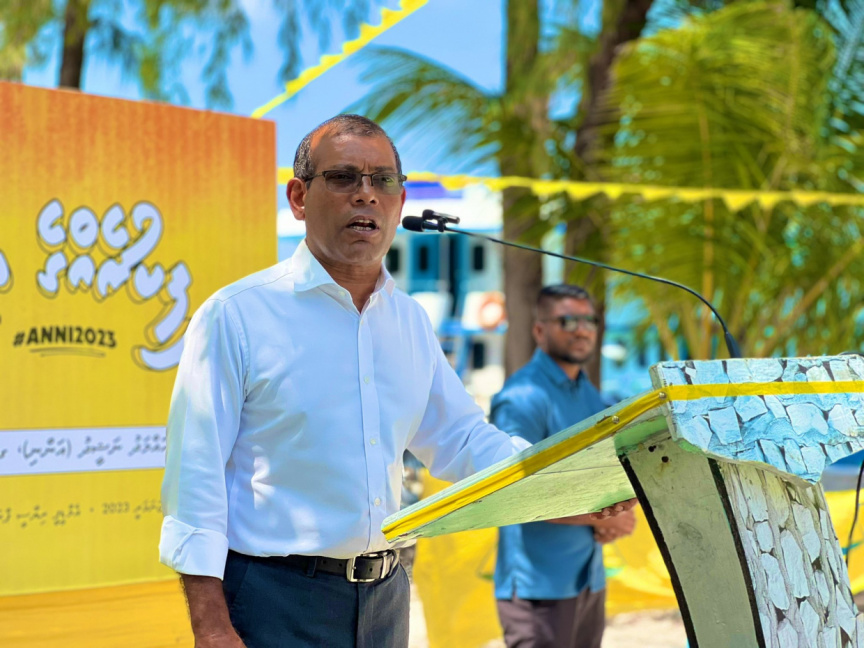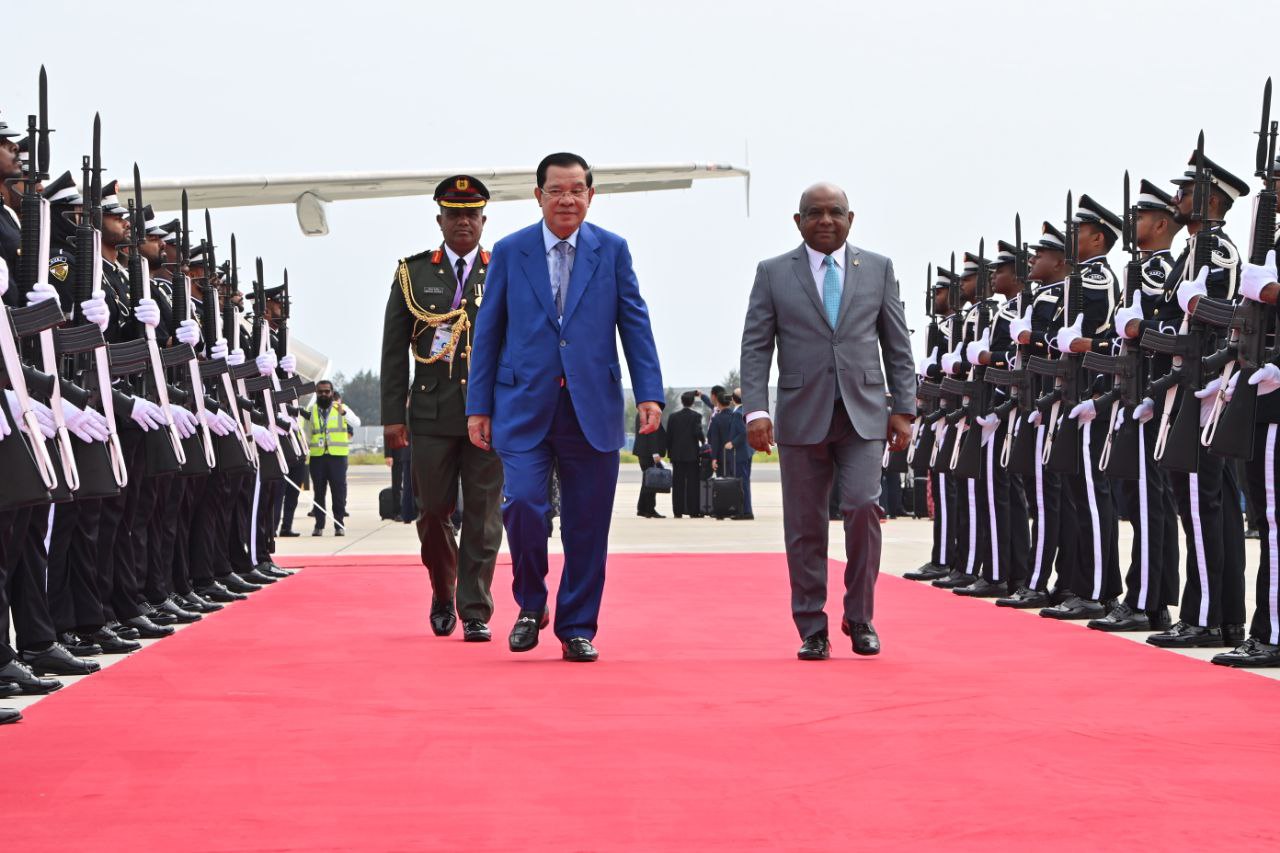As the row over classroom Hijab ban escalates in India, after Muskaan Khan, a young college student was heckled and harassed by a group of aggressive Hindu nationalist activists in the southern province of Karnataka, an old image of determined Muslim women protesting the discriminatory Citizenship Act couple of years ago flashed through my mind. Standing at Park Circus Maidan – a huge public park with a spacious playground, which hosted Calcutta’s resistance to an alleged ploy to marginalize India’s largest minority group, the Muslims, by default – and witnessing history unfold, I realized, India is quietly undergoing a radical shift in the structure and pattern of democratic dissent. Women, particularly from Muslim families with ordinary background and without any political ambition whatsoever, were no longer hesitant in spearheading a mass revolt in public, quite unprecedentedly. Ably supported by their male counterparts, they strived hard to preserve and protect India’s hallowed Constitution and syncretic cultural ethos, threatened by a discriminatory law. And I saw in their effort a celebration of national solidarity – in anger and togetherness. Somehow, my journalistic instinct was overshadowed by an esprit de corps, as I felt overwhelmed by emotion, watching homemakers, who never ever imagined of taking the leadership role even in domestic space, leading the public dissent with a dream in their eyes – that of ensuring a dignified life for their children in an increasingly intolerant India. A wheelchair bound quinquagenarian cancer patient Asmat Jamil’s indomitable spirit was one of the strongest pillars of the struggle that Muslim women had embarked on. She was resolute in her commitment of not letting politicians, flirting with divisive ideology, tear into shreds the priceless unity and secular fabric of India. It might have been an unequal confrontation against the might of the State, desperate to identify the ordinary people by their religion only, but the sweeping winds of change that the courageous ladies heralded had the potential to purify and reform India, currently obsessed with majoritarian tyranny. A young Muskaan, who overnight turned into the face of resistance for all oppressed Muslim women across the globe, carried the torch of a legacy that the anti-citizenship law activists left behind.
PLURALISM DISMANTLED
Pluralism has always been central to the idea of India as a nation, and her founding fathers envisioned a secular country based on religious pluralism, despite a communal split of the Indian subcontinent to create two independent entities. Unfortunately, the eventual triumph of religious nationalism over secular nationalism and certain events and policies, in addition to vitriolic barb against minorities, especially during election time to accrue political dividend, feeds into the fundamentalist narrative that India is in grip of. The consequent radical shift in the country’s societal psyche, vis-à-vis embracing Hindu fundamentalist values, has been so far reaching that an alarming Islamophobic trait is reflected in governance too. Votaries of majoritarianism argues, this radicalization of the Hindu mindset has roots in the pain of partition, which still runs very high in the Indian subcontinent. Regrettably, the communal poison has spread far and wide in “champion of minorities” Mahatma Gandhi’s India, which in itself is an outcome of the popularity that Hindu identity politics has gained since the demolition of Babri Mosque in 1992. So vitiated is the atmosphere that even a province like Tripura, with less than 10 percent Muslim population, recently witnessed its maiden Hindu-Muslim communal riot since the 1947 partition. Alas, democracy in India is no longer an instrument for the people to exercise power. Rather, the democratic base has shrunk significantly because the State has started usurping the rights of the people. The guardians of Hindutva, the ideology governing political Hinduism, does not recognize the diversity of ideas or the concept of dialogue and debate. Monologue is the favourite tool of the leadership to disseminate views, while a methodical onslaught on the institutions of democracy has ensured that the freedom India’s hallowed Constitution provides to the citizenry excludes the freedom to oppose. Even, the great revolutionary Marxist Rosa Luxemburg had underscored the necessity of freedom for dissenters, as she famously said, “freedom only for the members of one party is no freedom at all. Freedom is always and exclusively freedom for the one who thinks differently.”
EXECUTIVE INDIFFERENCE
The worst part of this Hijab controversy is the complete lack of response from Prime Minister Narendra Modi, which made me go back in time. While spending a quiet birthday on March 15, 2019, the most terrible live stream of a brutal massacre of Muslim devotees anywhere on earth left me nauseated. The very fact of the remorseless extremist pouring out his radical inner-thoughts brazenly, in the form of an open manifesto, proved beyond doubt that this was part of a larger design to spread hate across the world in a calibrated manner. But for New Zealand Prime Minister Jacinda Ardern, the outcome of such a grisly crime could have been a chain of global retribution, equally horrific. Ardern’s prompt intervention halted – even if temporarily – the process of breathing life into another Frankenstein. She conveyed to me her resolve to stand by the Muslim community through thick and thin and strictly contain the spread of toxic ideology, when I could not hide my astonishment at New Zealand – a nation far removed from the epidemic of hatred – enduring such carnage. In contrast, Arden’s Indian counterpart showed no desire to take on jingoism head on, when invasion of incivility is ruining the colourful canvas that India is – made up of a unique socio-cultural diversity. In the words of English liberal historian and moralist Lord Acton, “despotic power is always accompanied by corruption of morality.” Thus, Modi could not become an exemplary role model in a world grappling with the upsurge of majoritarian supremacism, and uphold the true spirit of Loksamgraha – as advanced in the Hindu religious scripture Bhagavad Gita, which encourages welfare of all by rising above self. Ironically, humanism, empathy and fostering harmony – the attributes integral to Hinduism, are all missing from the Hindu nationalist governance in India.

 News5 days ago
News5 days ago
 World6 days ago
World6 days ago
 News2 days ago
News2 days ago
 World6 days ago
World6 days ago
 Travel & Culture4 days ago
Travel & Culture4 days ago
 Sports3 days ago
Sports3 days ago
 News4 days ago
News4 days ago
 Travel & Culture3 days ago
Travel & Culture3 days ago






























